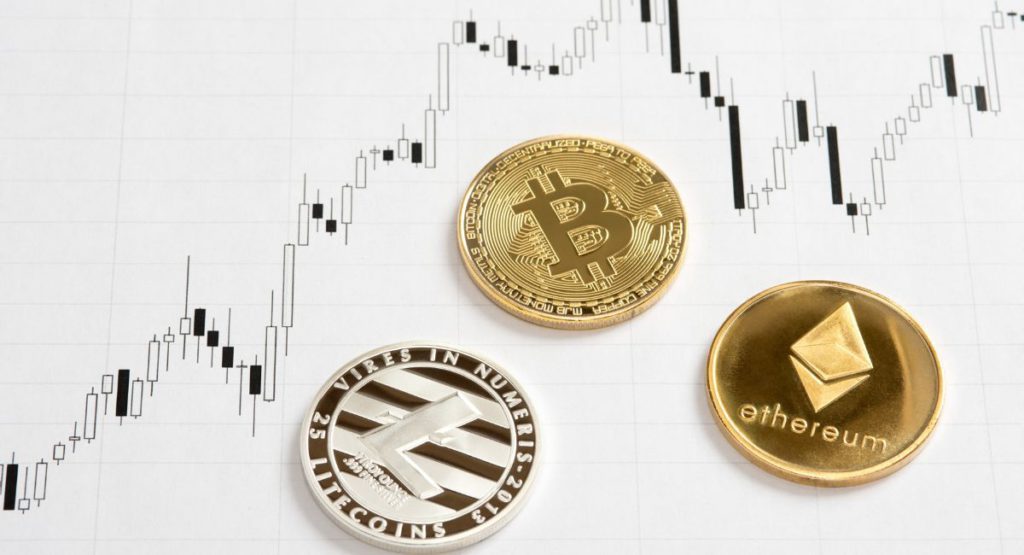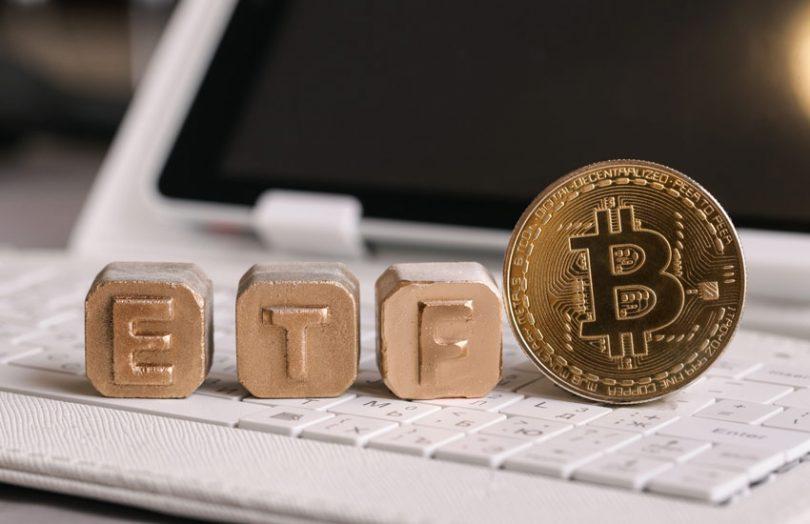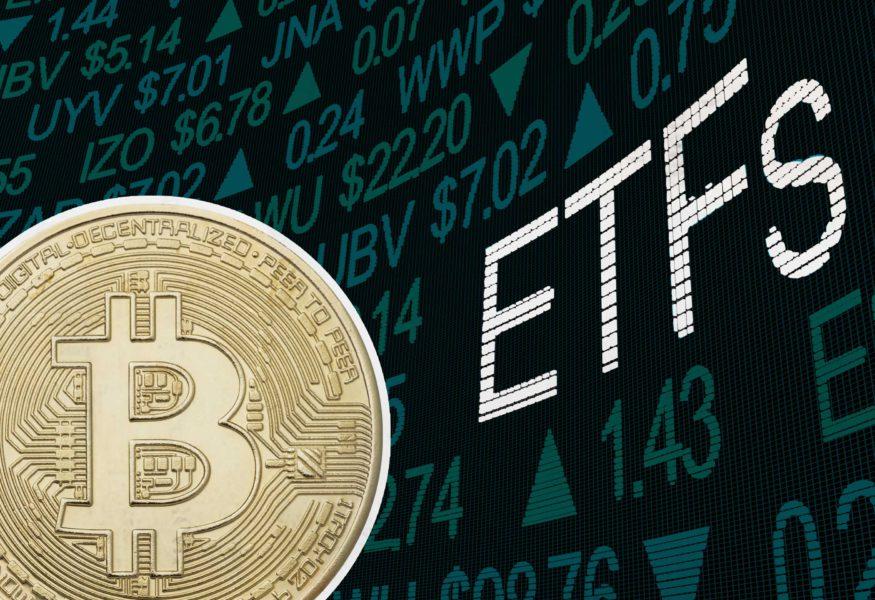Your Ultimate Guide To Bitcoin Futures ETF (Exchange-Traded Fund)
Bitcoin, the pioneering cryptocurrency, has continued to captivate the financial world with its meteoric rise and fall, as well as its increasing acceptance in mainstream finance. The introduction of Bitcoin Futures Exchange-Traded Funds (ETFs) has been a significant development in the crypto space, bridging the gap between traditional financial markets and the world of digital assets. In this ultimate guide, we will explore what Bitcoin Futures ETFs are, how they work, their benefits, and considerations for investors.
What Are Bitcoin Futures?

Bitcoin futures are a type of financial derivative contract that enables traders to speculate on the future price of Bitcoin without actually owning the cryptocurrency. These contracts provide a means for individuals and institutions to profit from Bitcoin’s price movements, whether it’s expected to go up (going long) or down (going short). Let’s delve deeper into what Bitcoin futures are and how they work:
1. Purpose of Bitcoin Futures:
The primary purpose of Bitcoin futures is to provide a standardized and regulated platform for investors to hedge risk or profit from price fluctuations in the Bitcoin market. It introduces a level of predictability and risk management that is essential for both cryptocurrency enthusiasts and traditional investors.
2. Key Elements of Bitcoin Futures:
- Underlying Asset: The underlying asset in a Bitcoin futures contract is, as the name suggests, Bitcoin itself. This means that the contract’s value is directly tied to the price of Bitcoin.
- Contract Size: Bitcoin futures are typically offered in standard contract sizes. For example, one contract might represent five Bitcoin. This allows traders to control a more substantial position than they might otherwise be able to with the same amount of capital.
- Expiry Date: Bitcoin futures contracts have a predefined expiration date. On this date, the contract settles, and the trader’s position is closed. The most common Bitcoin futures contracts have monthly expirations.
- Settlement Price: At the contract’s expiration, the settlement price is determined based on a reference to the Bitcoin market. This can be the average price of Bitcoin over a specific time frame or the price at a particular point in time.
- Long and Short Positions: Traders can take either a long position, betting on a rising Bitcoin price, or a short position, speculating on a falling Bitcoin price.
3. Trading Bitcoin Futures:
Trading Bitcoin futures typically takes place on regulated exchanges, such as the Chicago Mercantile Exchange (CME) in the United States. The process involves the following steps:
- Opening a Position: A trader can open a Bitcoin futures position by either going long or going short. If they expect the price to rise, they go long, and if they anticipate a price drop, they go short.
- Leverage: Many futures contracts allow traders to use leverage, meaning they can control a more substantial position than their initial investment. While this can amplify profits, it also increases potential losses.
- Managing the Position: Traders can manage their futures positions by monitoring the market and making adjustments, such as closing the position before the contract expires.
- Settlement: When the contract reaches its expiration date, it is settled. This means that profits and losses are realized, and the trader’s account is credited or debited accordingly.
Also, read – Top 10 Ways Bitcoin Changed The Way We Think About Digital Assets
How Do Bitcoin Futures Work?

Bitcoin futures contracts work on the principle of speculative trading based on future price movements of Bitcoin. Here’s a breakdown of how Bitcoin futures contracts operate:
1. Contract Creation:
A Bitcoin futures contract is created when two parties, a buyer (long) and a seller (short), agree to trade a specified quantity of Bitcoin at a predetermined price on a future date. These contracts are standardized in terms of size, expiration date, and other key parameters, making them tradable on regulated futures exchanges.
2. Price Speculation:
Traders use Bitcoin futures to speculate on the price direction of Bitcoin. Depending on their outlook, they can take a long position if they expect the price to rise or a short position if they anticipate a price decline.
3. Contract Settlement:
Bitcoin futures contracts have a fixed expiration date. When the contract reaches its expiration, it is settled. Settlement can occur in two primary ways:
- Cash Settlement: In cash-settled contracts, the difference between the contract price and the actual market price of Bitcoin at the time of expiration is settled in cash. No physical delivery of Bitcoin occurs.
- Physical Delivery: In physically settled contracts, the parties involved must exchange the actual Bitcoin at the predetermined price when the contract expires. Physical delivery is less common and requires the infrastructure to handle cryptocurrency custody.
4. Trading on Regulated Exchanges:
Bitcoin futures contracts are traded on established and regulated futures exchanges. These platforms ensure transparency, standardization, and liquidity in the futures market. Notable exchanges offering Bitcoin futures include the Chicago Mercantile Exchange (CME) and the Intercontinental Exchange (ICE).
5. Risk Management:
Bitcoin futures provide a way for market participants to hedge against price volatility. For example, Bitcoin miners may use futures to lock in a price for their mined Bitcoins to reduce risk. Speculators can also use futures to profit from both rising and falling markets.
6.Leverage:
One notable feature of Bitcoin futures is leverage, which allows traders to control a more substantial position than their initial investment. While leverage can amplify potential profits, it also increases the level of risk, as losses can exceed the initial investment.
In summary, Bitcoin futures offer a regulated and standardized method for traders to speculate on Bitcoin’s price movements without owning the underlying asset. These contracts have become increasingly popular among both institutional and retail investors as the cryptocurrency market continues to evolve and mature. However, it’s important to understand the risks associated with futures trading and conduct thorough research before participating in this market.
Bitcoin Futures Exchange-Traded Fund (ETF)

The advent of Bitcoin Futures ETFs has marked a significant milestone in the cryptocurrency and financial markets. These investment products bridge the gap between traditional exchange-traded funds and the dynamic world of cryptocurrencies. In this section, we will explore the introduction and essential aspects of Bitcoin Futures ETFs:
https://twitter.com/i/status/1719022336765214964
A Bitcoin Futures ETF, as the name suggests, is an Exchange-Traded Fund that is designed to provide exposure to Bitcoin through Bitcoin futures contracts. It offers a regulated and accessible way for investors to gain indirect exposure to Bitcoin’s price movements without holding the actual cryptocurrency. Here’s a closer look at the key components of Bitcoin Futures ETFs:
1. Exchange-Traded Fund (ETF):
An ETF is a type of investment fund and exchange-traded product with shares that are tradeable on a stock exchange. ETFs are designed to track the performance of an underlying asset or index, similar to traditional mutual funds, but with the flexibility and liquidity of trading on an exchange.
2. Bitcoin Futures Contracts:
A Bitcoin Futures ETF achieves its exposure to Bitcoin by investing in Bitcoin futures contracts. These futures contracts are financial derivatives that allow investors to speculate on the future price of Bitcoin without owning the actual cryptocurrency. By investing in these contracts, the ETF aims to mirror the price movements of Bitcoin itself.
3. Indirect Exposure:
It’s important to note that a Bitcoin Futures ETF does not directly hold Bitcoin. Instead, it holds futures contracts linked to the cryptocurrency. This indirect exposure enables investors to participate in Bitcoin’s price volatility without the complexities of managing digital wallets or security concerns associated with cryptocurrency ownership.
How Does a Bitcoin Futures ETF Work?
The operation of a Bitcoin Futures ETF is relatively straightforward but involves several key steps to provide investors with exposure to Bitcoin’s price movements:
1. Investment Inflows:
Investors purchase shares of the Bitcoin Futures ETF on traditional stock exchanges, similar to buying shares of a company. The proceeds from these share purchases are collected in a fund.
2. Fund Management:
The fund management team oversees the ETF’s investment strategy. Their primary objective is to allocate the collected funds to Bitcoin futures contracts in such a way that the ETF’s performance closely tracks the price of Bitcoin.
3. Bitcoin Futures Contracts:
The fund uses the invested capital to purchase Bitcoin futures contracts. These contracts obligate the ETF to buy or sell Bitcoin at a specified price and date in the future. By holding these contracts, the ETF gains exposure to Bitcoin’s price fluctuations.
4. Tracking Benchmark:
The ETF aims to track a benchmark that reflects the price of Bitcoin. The performance of the ETF’s shares is expected to mirror the benchmark’s performance, allowing investors to profit or incur losses based on Bitcoin’s price movements.
5. Liquidity and Trading:
Bitcoin Futures ETF shares are traded on traditional stock exchanges, providing high liquidity and ease of trading for investors. This means that investors can buy or sell shares of the ETF throughout the trading day, similar to any other stock.
6. Rebalancing:
The fund management team periodically rebalances the portfolio to ensure that it maintains the desired exposure to Bitcoin futures contracts. This involves adjusting the holdings in response to changes in the futures contracts or the ETF’s benchmark.
7. Dividends and Expenses:
Bitcoin Futures ETFs may pay dividends to investors, typically reflecting any income generated from their futures contracts. Investors should also be aware of the ETF’s expense ratio, which represents the costs associated with managing the fund.
In summary, a Bitcoin Futures ETF provides investors with a regulated and accessible vehicle for gaining exposure to Bitcoin’s price movements through Bitcoin futures contracts. This indirect investment approach has gained popularity among investors seeking to participate in the cryptocurrency market while benefiting from the security and transparency of the traditional financial system. It allows a diverse range of investors, including retail and institutional, to access the exciting world of cryptocurrency trading without directly owning or managing Bitcoin.
6️⃣ Spot #Crypto ETFs vs. Futures-based ETFs:
👉 Spot crypto ETFs directly hold cryptocurrencies like #Bitcoin, providing direct exposure to the asset.
👉 In contrast, futures-based ETFs track futures contracts tied to crypto, replicating price movements indirectly. pic.twitter.com/mVSzFs7RsG
— Keyur Rohit (@CryptoKingKeyur) November 7, 2023
Benefits, Risks, and Tax Efficiency of Bitcoin Futures ETF
Bitcoin Futures Exchange-Traded Funds (ETFs) offer investors unique advantages, but they also come with specific risks and considerations, including tax implications. In this section, we will explore the benefits, risks, and tax efficiency associated with Bitcoin Futures ETFs.
Benefits of Bitcoin Futures ETF:
1. Accessibility:
- Traditional Investors: Bitcoin Futures ETFs provide a more accessible entry point for traditional investors who may be hesitant to directly invest in cryptocurrencies. These ETFs can be traded through brokerage accounts on traditional stock exchanges.
2. Risk Management:
- Hedging: Institutional and retail investors can use Bitcoin Futures ETFs to hedge against potential Bitcoin price fluctuations. This is especially useful for miners and businesses that want to mitigate risk.
3. Liquidity:
- Ease of Trading: Bitcoin Futures ETFs offer high liquidity, allowing investors to buy and sell shares during regular market hours. This liquidity provides flexibility and the ability to execute trades at market prices.
4. Diversification:
- Exposure to Multiple Assets: Some Bitcoin Futures ETFs may provide exposure to various cryptocurrencies or financial assets, allowing investors to diversify their portfolios beyond just Bitcoin.
5. Tax Efficiency:
- Capital Gains Treatment: Depending on your jurisdiction, Bitcoin Futures ETFs may offer a more tax-efficient way to invest in Bitcoin. Profits from futures contracts may be taxed as capital gains, which can have favorable tax treatment compared to direct cryptocurrency ownership.
Risks of Bitcoin Futures ETF:
1. Volatility:
- Price Fluctuations: Bitcoin and Bitcoin futures are known for their price volatility. Investing in a Bitcoin Futures ETF does not eliminate this risk; it merely allows you to speculate on price movements.
2. Tracking Error:
- Performance Variance: The performance of Bitcoin Futures ETFs may not precisely track the price of Bitcoin. Factors like futures contract rollover, fees, and market dynamics can result in tracking errors.
3. Leverage:
- Amplified Losses: Some Bitcoin Futures ETFs offer leverage, which can magnify both gains and losses. While leverage can boost profits, it also increases risk, as losses can exceed the initial investment.
4. Regulatory Risk:
- Regulatory Changes: The regulatory environment surrounding Bitcoin futures and ETFs can change. New regulations or government actions can impact the ETF’s operations or performance.
5. Market Risk:
- Market Liquidity: The liquidity of the Bitcoin futures market can impact the ETF’s ability to execute trades efficiently, especially during periods of extreme market volatility.
Tax Efficiency of Bitcoin Futures ETF:
1. Capital Gains Treatment:
- Advantage: In some jurisdictions, profits from Bitcoin futures contracts may be taxed as capital gains. Capital gains typically receive more favorable tax treatment compared to ordinary income.
- Consideration: Tax rules vary by country and region, so it’s essential to understand the tax treatment applicable to Bitcoin Futures ETFs in your specific jurisdiction.
2. Potential Deferral:
- Advantage: Some investors may benefit from the potential to defer capital gains taxes until they sell their ETF shares. This can provide tax efficiency, especially for long-term investors.
- Consideration: Tax deferral strategies should align with your overall financial goals and investment horizon.
3. Reduced Complexity:
- Advantage: Investing in a Bitcoin Futures ETF may reduce the complexity of tax reporting associated with cryptocurrency ownership. Tax reporting for futures contracts can be simpler than tracking and reporting individual cryptocurrency transactions.
- Consideration: You should still keep accurate records of your ETF transactions and consult with a tax professional to ensure proper reporting.
In conclusion, Bitcoin Futures ETFs offer a compelling means of gaining exposure to Bitcoin’s price movements with several advantages, including accessibility, risk management, liquidity, and potential tax efficiency. However, investors should be aware of the associated risks, such as market volatility, tracking error, leverage, regulatory changes, and market risk. Additionally, the tax implications of Bitcoin Futures ETFs can vary by jurisdiction, so it’s crucial to understand the tax treatment in your specific area and consult with tax professionals for guidance on managing your tax liability.
Conclusion
The introduction of Bitcoin Futures Exchange-Traded Funds (ETFs) has heralded a significant development in the cryptocurrency and financial markets, allowing traditional investors to participate in the dynamic world of cryptocurrencies without directly owning Bitcoin. In this concluding section, we’ll summarize the key takeaways and the importance of Bitcoin Futures ETFs in the evolving landscape of financial investments.
Bridging Traditional Finance and Cryptocurrency:
Bitcoin Futures ETFs represent a bridge between the traditional financial world and the digital asset space. They enable investors who are accustomed to stock market investments to access the cryptocurrency market, offering a regulated and straightforward approach to gain exposure to the price movements of Bitcoin.
Accessibility and Regulation:
These ETFs offer accessibility, making it easier for both retail and institutional investors to participate in the cryptocurrency market. The fact that they are traded on regulated exchanges provides investors with a sense of security and transparency that is often lacking in the broader cryptocurrency space.
Risk Management and Diversification:
Bitcoin Futures ETFs allow investors to manage risk effectively. They are instrumental in helping businesses, miners, and investors hedge against Bitcoin’s price fluctuations. Moreover, some ETFs offer diversification, allowing investors to gain exposure to multiple cryptocurrencies or assets, which can help spread risk.
Caution and Due Diligence:
While Bitcoin Futures ETFs offer many benefits, investors are cautioned to conduct thorough research and due diligence before investing. It’s important to consider factors such as regulatory changes, costs, tax implications, and tracking errors when evaluating these investment products.
Evolving Cryptocurrency Landscape:
As the cryptocurrency market continues to evolve and mature, Bitcoin Futures ETFs stand as a testament to the increasing acceptance and integration of digital assets into the broader financial ecosystem. Their popularity reflects the growing interest in cryptocurrencies as a legitimate asset class.
In conclusion, Bitcoin Futures ETFs are a significant step towards making cryptocurrencies more accessible and secure for a wider range of investors. They provide a well-regulated and straightforward route to participate in the cryptocurrency market while still adhering to traditional investment principles. As the cryptocurrency landscape continues to evolve, these ETFs are likely to play a crucial role in bridging the gap between the traditional financial world and the digital asset space, contributing to the ongoing growth and maturation of the cryptocurrency industry.
FAQs about Bitcoin Futures ETFs
- What is a Bitcoin futures ETF?
- A Bitcoin futures ETF is designed to provide investors with a way to speculate on or hedge against the price movements of Bitcoin using futures contracts. Instead of holding physical Bitcoin, these ETFs invest in futures contracts linked to the cryptocurrency. They are traded on traditional stock exchanges and can be bought and sold like stocks.
- Which ETF is best for Bitcoin?
- The “best” Bitcoin ETF depends on your investment goals and the specific features you’re looking for. Some well-known Bitcoin futures ETFs include the ProShares Bitcoin Strategy ETF (BITO) and the Valkyrie Bitcoin Strategy ETF (BTF). It’s important to research the ETF’s structure, fees, and tracking accuracy before making a choice.
- Difference between BTC futures ETF and spot ETF:
- BTC Futures ETF: These ETFs invest in Bitcoin futures contracts, which are agreements to buy or sell Bitcoin at a predetermined price at a future date. They are based on the expected future price of Bitcoin and can involve leverage.
- Spot ETF: A spot ETF typically holds the underlying asset, in this case, physical Bitcoin. It aims to track the real-time price of Bitcoin and does not involve futures contracts. Spot ETFs directly hold the asset they represent.
- Can I buy Bitcoin futures?
- Yes, you can buy Bitcoin futures contracts, but this involves trading on futures markets. It’s different from buying physical Bitcoin or investing in a Bitcoin ETF. To trade Bitcoin futures, you would need an account with a futures broker, as well as an understanding of futures trading, leverage, and risk management.
Stay informed with daily updates from Blockchain Magazine on Google News. Click here to follow us and mark as favorite: [Blockchain Magazine on Google News].
Get Blockchain Insights In Inbox
Stay ahead of the curve with expert analysis and market updates.
latest from tech
Disclaimer: Any post shared by a third-party agency are sponsored and Blockchain Magazine has no views on any such posts. The views and opinions expressed in this post are those of the clients and do not necessarily reflect the official policy or position of Blockchain Magazine. The information provided in this post is for informational purposes only and should not be considered as financial, investment, or professional advice. Blockchain Magazine does not endorse or promote any specific products, services, or companies mentioned in this posts. Readers are encouraged to conduct their own research and consult with a qualified professional before making any financial decisions. The featured image used is just a creative depiction of the title and it does not intend to hurt sentiments of any person or institution. If it hurts anyone sentiments, please do not hesitate to reach out to Blockchain Magazine.

 Bitcoin
Bitcoin  Ethereum
Ethereum  XRP
XRP  Tether
Tether  Solana
Solana  Dogecoin
Dogecoin  USDC
USDC  Cardano
Cardano  Lido Staked Ether
Lido Staked Ether  TRON
TRON  Chainlink
Chainlink  Avalanche
Avalanche  Wrapped stETH
Wrapped stETH  Wrapped Bitcoin
Wrapped Bitcoin  Sui
Sui  Toncoin
Toncoin  Stellar
Stellar  Hedera
Hedera  Shiba Inu
Shiba Inu  WETH
WETH  Polkadot
Polkadot  LEO Token
LEO Token  Litecoin
Litecoin  Bitcoin Cash
Bitcoin Cash  Bitget Token
Bitget Token  Uniswap
Uniswap  Hyperliquid
Hyperliquid  Official Trump
Official Trump  USDS
USDS  Wrapped eETH
Wrapped eETH  Pepe
Pepe  NEAR Protocol
NEAR Protocol  Ethena USDe
Ethena USDe  Aave
Aave  Aptos
Aptos  Internet Computer
Internet Computer  Monero
Monero  Ethereum Classic
Ethereum Classic  WhiteBIT Coin
WhiteBIT Coin  Ondo
Ondo  Cronos
Cronos  POL (ex-MATIC)
POL (ex-MATIC)  Mantle
Mantle  Render
Render  Dai
Dai  MANTRA
MANTRA  Algorand
Algorand 





